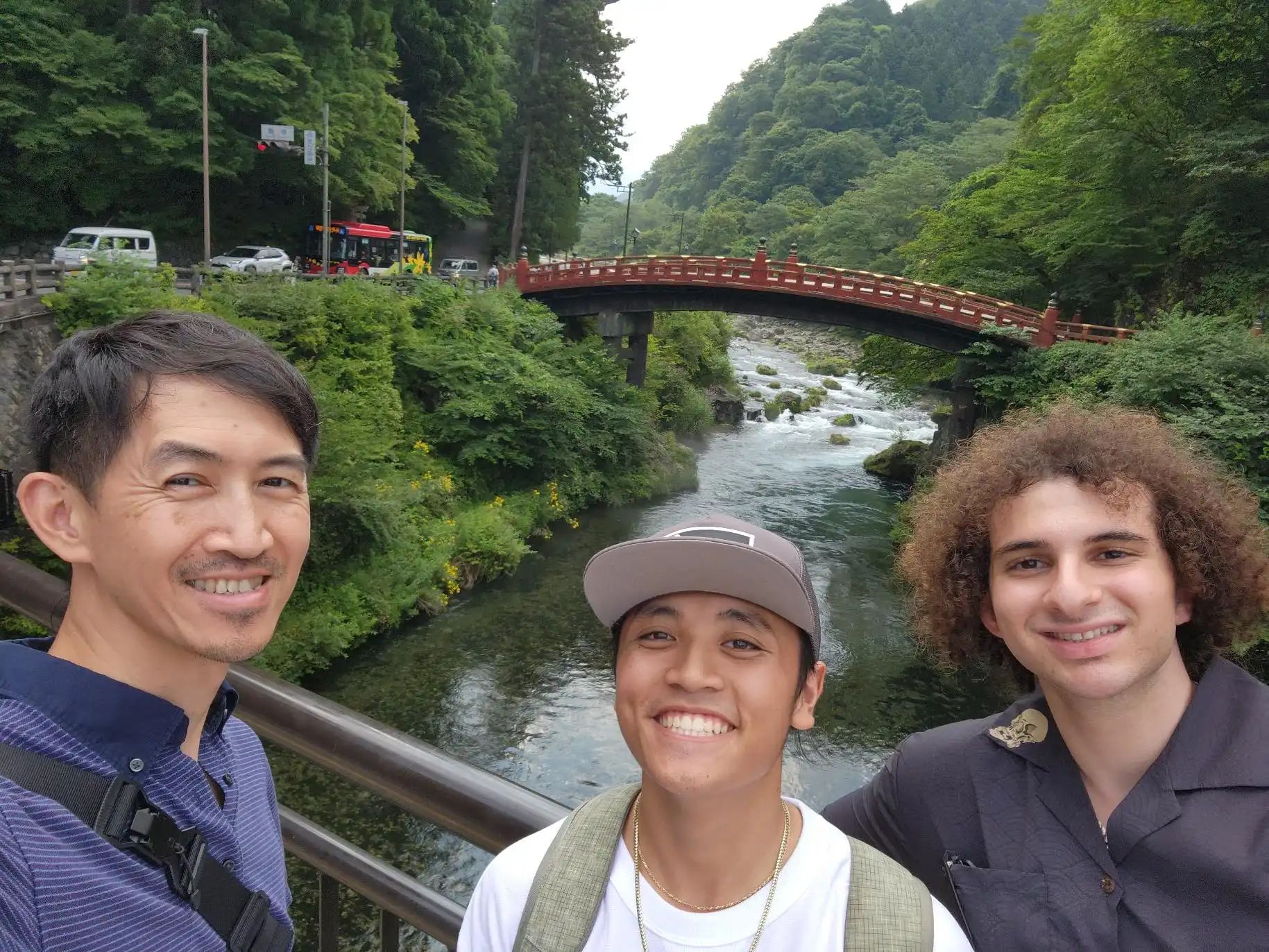- Home
- >
- APU Articles
- >
- News Article
APU Students Travel to Japan to Conduct Environmental Biology Research and Collaborate with Professional Scientists
April 07, 2025 | Category Humanities and Sciences | Written By Jacqueline Guerrero

Since 2015, Charles Chen, PhD, a professor in the Department of Biology and Chemistry at Azusa Pacific University, has given students the chance to grow academically and culturally by leading summer research trips to Japan. This summer, Chen will lead his fifth trip, and the third working on a project that looks at the effects of water management on the growth and function of rice plants.
Chen’s team conducts this research in collaboration with Japan’s National Agricultural and Food Research Organization (NARO) in Tsukuba, Japan. Lowland rice is typically grown in rice paddies that are continuously flooded with water. This method of growing rice requires lots of water and also results in the release of methane gas which can contribute to global warming. Another downside of the submerged conditions is that rice can collect traces of arsenic from the soil or water, which may pose a public health and food safety issue in some parts of the world. Chen’s research team is testing the viability of alternative paddy irrigation schedules that have been proposed to help solve these environmental issues.
During the week, students spend their days working in the fields measuring the gas exchange and physiology of rice leaves using specialized research instruments. Data from the first two field seasons have indicated that the proposed irrigation schedules do not significantly affect the health or productivity of the rice plants, so farmers should be encouraged to use this method in the future to increase the sustainability of their food production.
Currently, students are preparing to present their work at research conferences taking place this spring. “The data we collect doesn’t stay on our computers,” Chen said. “We analyze and interpret it so that it can be presented to the broader community. It also gives us the opportunity to receive feedback on our work and identify future directions for our project.”
Working closely with professional researchers is a great learning experience for students that often inspires them to continue in similar fields. “Seeing people dedicate their lives to this work brought into perspective just how much there is to explore in plant research as well as how it fit into the rest of God’s intricate creation,” said Rami Ezzeddine ’26, a biology major with an emphasis in molecular biology and a minor in honors humanities who went on the trip last summer. Quinn Pascua ’26, an allied health major with a minor in honors humanities went on the trip last summer as well. “I learned a lot of ways to do research, collect statistics, and interpret data,” he said. “Seeing how everyone had their own part to play and worked well together was inspiring.”
While allowing students to gain research experience in a professional setting is the main goal of the trip, Chen also prioritizes experiencing the local culture, particularly in the church community. Each summer, Chen takes his students to his former home church where they are able to be in fellowship with local believers and see how Christians live out their lives in a different cultural context.
One of Ezzeddine’s favorite parts of the trip was visiting Nikko, a place high up in the mountains with historical temples and breathtaking architecture. The students also enjoyed interacting with Japanese university students through a local Christian club. “We all ended up bonding from day one, forming a brotherhood that transcended any cultural differences and language barriers there might have been,” Ezzeddine said. Pascua elaborated on forming connections with those in the community. “We were able to befriend a local business owner who ran a small gym in the area. We talked about our shared passion for weightlifting, and even joined some of the classes he taught.”
Chen is currently making preparations for this summer’s trip, bringing a new cohort of students looking to experience a unique, immersive, and challenging research experience. “This trip encapsulates what makes APU special,” he said. “These undergraduate students have a special opportunity to take what they learn in classes and apply it to an impactful research project while also growing through the intercultural experience. This reflects the ethos of the Department of Biology and Chemistry, which strives to help our students develop through meaningful research experiences and mentorship.”